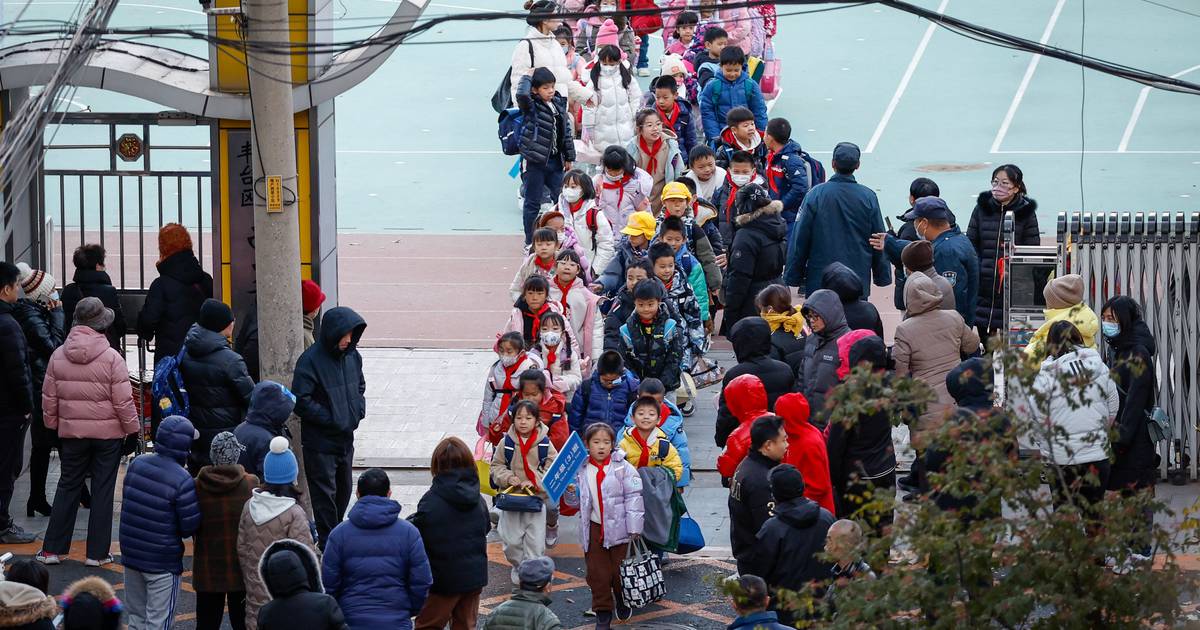Infection
Bacterial infection causing concern in China detected in Ireland
A bacterial infection implicated in a surge in respiratory illnesses in China is on the rise in the community in Ireland, authorities have confirmed.
An outbreak of mycoplasma pneumoniae notified to the Health Protection Surveillance Centre (HPSC) last month was the first in “a number of years”, it said.
A recent spike in respiratory illness and clusters of pneumonia in children in China led to an official request from the World Health Organisation last week for more information. It has also stoked unpleasant memories of the origins of the Covid-19 pandemic in the same country in late 2019.
China says it has not detected any unusual or new diseases on this occasion and has attributed the rise in illnesses to Covid-19, respiratory syncytial virus (RSV) and mycoplasma pneumoniae.
While information remains scant, the situation is being monitored by Irish authorities, including the HPSC and the new emerging health threats agency led by Prof Mary Horgan.
[ Children’s hospitals under pressure as respiratory cases rise 36% in a week ]
[ ‘Disappointing’ vaccine uptake to put pressure on hospitals, Health Service Executive forecasts ]
Flu and Covid-19 levels remain relatively low in Ireland at present, but an early wave of RSV, similar to that experienced last year, is putting pressure on children’s hospitals. Almost 300 people were hospitalised with RSV earlier this month, almost all of them infants.
Mycoplasma pneumoniae is not a notifiable disease in Ireland, or in most European countries, according to the HPSC. However, outbreaks of mycoplasma pneumoniae are notifiable.
One community outbreak was notified in October, the first in a number of years, it said. There has been an increase in detections of the bug by GPs, with six cases notified in October and nine in November. So far this year, there have been 19 cases, compared to just one in 2022.
“These are still small numbers,” the HPSC said.
Detections in hospitals remain at low levels, with 13 cases notified so far this year compared to 77 in 2022. A slight increase has been noted since September.
Mycoplasma pneumoniae is a bacterium that causes lung infection and is a common cause of pneumonia. Cases are more common in summer and early autumn, with peaks of disease every three to seven years.
[ Covid-19 vaccines prevented 16,000 deaths in Ireland, study says ]
“Currently, the numbers of community mycoplasma pneumoniae cases identified by the National Virus Reference Laboratory are higher than those seen last year but as infection follows a cyclical pattern, it is to be expected. The HPSC will continue to monitor the infection trends,” it said.
In its statement last week, the WHO noted that authorities at China’s National Health Commission reported an increase in respiratory diseases, which they said was due to the lifting of Covid-19 lockdown restrictions.
In many countries, the ending of pandemic restrictions has been associated with a jump in respiratory illnesses such as flu and RSV.
Mycoplasma pneumoniae is atypical for many pathogens because it has a slow generation time, long incubation period and relatively low transmission rate, an article in Lancet Microbe pointed out last week. These could be factors leading to the longer time interval required to re-establish itself following the restrictions imposed during the Covid-19 pandemic.

